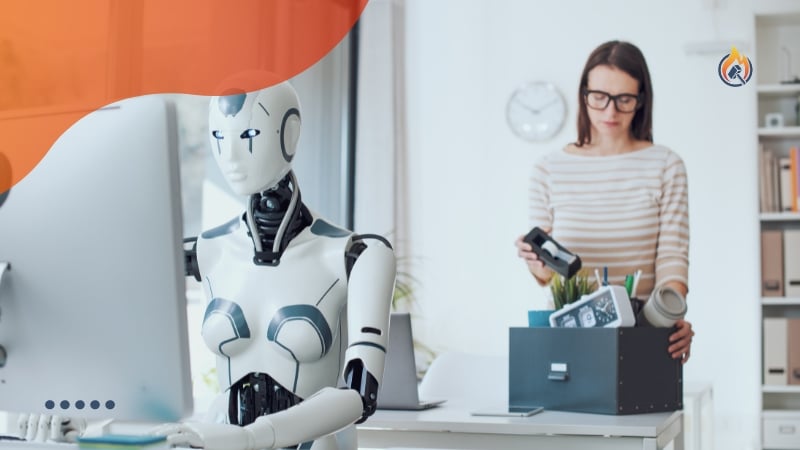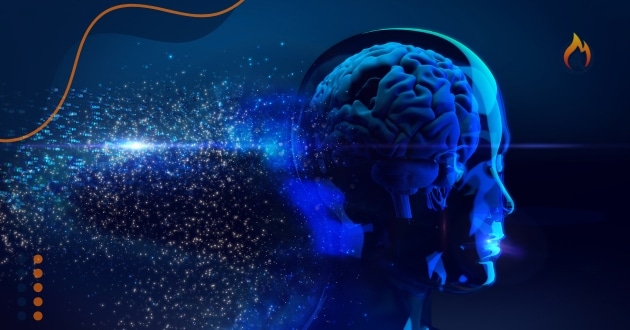Future of artificial intelligence technology is no longer a matter of speculation, it’s a pressing reality shaping our present and defining the trajectory of global innovation. As AI becomes increasingly integrated into the fabric of our daily lives, from voice assistants to autonomous vehicles, it’s crucial to understand not just how it works today, but where it’s heading tomorrow.
The evolution of AI has moved swiftly. What started as simple rule-based programs has transformed into highly complex neural networks capable of mimicking human behavior, learning from data, and making autonomous decisions.
This rapid progress leads us to ask fundamental questions: What role will AI play in the next decade? How will it impact industries, governments, and individuals? And perhaps most importantly, what challenges must we address as this technology continues to expand?
In many ways, the Future of artificial intelligence technology reflects both promise and uncertainty. On one hand, it holds the key to solving some of humanity’s greatest challenges, curing diseases, reducing energy consumption, and automating dangerous tasks.
On the other hand, it introduces complex ethical dilemmas, such as data privacy, algorithmic bias, and the displacement of human jobs.
The Current State of AI: A Brief Overview
Artificial intelligence has rapidly evolved from a niche academic pursuit to a cornerstone of modern innovation. Today, it powers natural language processing tools, computer vision systems, and predictive analytics across sectors like healthcare, finance, and transportation.
These technologies are not only improving efficiency and accuracy but also changing how humans interact with digital systems on a daily basis.
As AI applications grow, so does public interest and financial backing. From chatbots in customer service to fraud detection in banking, AI is becoming essential for businesses seeking a competitive edge.
As a result, there are increasing investment opportunities in technology startups that are pushing the boundaries of what AI can do, particularly in areas like personalized medicine, education, and smart infrastructure.
Despite these advances, current AI is still categorized as “narrow”, it excels at specific tasks but lacks true human-like reasoning. Even so, the pace of progress suggests that the Future of artificial intelligence technology will bring more adaptable, autonomous, and context-aware systems, with far-reaching implications for society, industry, and the global economy.
Emerging Trends in AI Development
Several key trends are setting the stage for the Future of artificial intelligence technology. Let’s explore the most significant ones.
- Explainable AI (XAI): As AI systems become more complex, the need for transparency is growing. Explainable AI seeks to make decision-making processes understandable to humans. This is especially vital in sectors like healthcare or criminal justice, where accountability is essential.
- AI and Quantum Computing: Quantum computing has the potential to supercharge AI capabilities. With its ability to process massive data sets at incredible speeds, quantum computing could enable breakthroughs in modeling complex biological systems or optimizing global supply chains.
- AI Ethics and Regulation: With great power comes great responsibility. Governments and institutions worldwide are working to establish ethical frameworks and regulations for AI. Issues like data privacy, algorithmic bias, and accountability are front and center in AI policy discussions.
- Edge AI and IoT Integration: Rather than relying on centralized cloud systems, Edge AI allows devices to process data locally. This shift enables faster decision-making, which is crucial in time-sensitive applications like autonomous driving or smart cities.
- AI-Generated Content: Tools like ChatGPT, DALL·E, and others are ushering in a new era of content creation. While this presents opportunities for creativity and efficiency, it also raises questions about authenticity, copyright, and misinformation.
AI in Key Industries: What’s Coming Next
AI’s impact varies across sectors. To fully grasp the Future of artificial intelligence technology, it’s helpful to examine how different industries are adapting and what lies ahead.
1 – Healthcare Future of artificial intelligence technology
AI is set to revolutionize healthcare by enabling:
- Early disease detection through imaging and predictive analytics,
- Customized treatment plans based on genetic data,
- AI-assisted surgeries with increased precision and reduced recovery time.
In the future, we can expect AI to support mental health through real-time emotional analysis and even help discover new drugs faster using machine learning models.
2 – Education: Adaptive Learning Environments
In education, AI will power:
- Personalized learning paths tailored to individual student needs,
- Automated grading and assessment tools, freeing up time for educators,
- AI tutors that can offer support 24/7.
Moreover, educational content could become more immersive with the integration of AI and virtual/augmented reality.
3 – Finance – Future of artificial intelligence technology
Banks and fintech firms are leveraging AI for:
- Risk assessment and credit scoring,
- Fraud detection using anomaly detection algorithms,
- Robo-advisors that provide investment advice.
Looking ahead, blockchain combined with AI may redefine how transactions are secured and verified.
4 – Transportation Future of artificial intelligence technology
Autonomous vehicles (AVs) are perhaps the most talked-about application of AI in transportation. Yet, the implications go beyond just self-driving cars. AI will also enhance:
- Route optimization for logistics companies,
- Predictive maintenance for public transport,
- Traffic flow management in smart cities.
The Future of artificial intelligence technology in transportation will likely result in reduced emissions, fewer accidents, and improved urban planning.
5 – Manufacturing: Industry 4.0 and Beyond
In factories, AI enables:
- Predictive maintenance of machinery,
- Real-time quality control using computer vision,
- Supply chain optimization through demand forecasting.
This progress, often labeled as Industry 4.0, points toward an even more connected, efficient, and adaptive manufacturing ecosystem.
6 – AI and Human Labor Future of artificial intelligence technology
One of the biggest debates surrounding the Future of artificial intelligence technology involves its impact on the workforce. While AI will inevitably displace certain jobs, it will also create new roles and opportunities.
Jobs at Risk vs. Jobs of the Future
As artificial intelligence continues to expand across industries, one of the most pressing concerns is its impact on employment. Understandably, many workers fear being replaced by machines, and in some cases, that concern is justified.
These include positions such as data entry clerks, cashiers, telemarketers, and assembly line workers. In these roles, AI systems and automation tools can perform the same functions faster, more accurately, and without fatigue.
However, it’s important to note that while AI may eliminate certain jobs, it also creates new ones, often requiring different skill sets. For example, the rise of artificial intelligence has led to increased demand for data scientists, machine learning engineers, AI ethicists, prompt engineers, and cybersecurity specialists.

Furthermore, there is growing need for professionals who can manage, interpret, and apply AI in meaningful ways within sectors like healthcare, education, law, and marketing.
Crucially, the Future of artificial intelligence technology is expected to shift the focus from job replacement to job transformation. According to the OECD’s report on automation and employment, while some jobs are at high risk of being automated, many others will evolve, requiring human adaptability, critical thinking, and emotional intelligence.
These shifts underscore the urgent need for investment in education, vocational training, and lifelong learning to prepare workers for an AI-integrated economy.
Ethical and Societal Considerations
As AI systems make decisions that affect real lives, ethical concerns become unavoidable.
- Bias in Algorithms: If AI is trained on biased data, it will replicate and even amplify existing social inequalities. This has already been observed in areas like hiring algorithms and facial recognition systems.
- Surveillance and Privacy: While AI-powered surveillance can enhance security, it also raises significant privacy concerns. Without proper safeguards, there’s a risk of authoritarian misuse or mass data exploitation.
- Deepfakes and Misinformation: AI-generated videos and voice mimics can easily spread false information. Combatting this will require not only technological solutions (like AI to detect AI) but also media literacy education.
Conclusion: Navigating a Future Shaped by AI
The Future of artificial intelligence technology is no longer a distant vision, it is unfolding right before our eyes. From enhancing how we diagnose diseases to revolutionizing how businesses operate, AI is redefining what’s possible across every sector of society.
Yet, with such power comes the responsibility to shape this future thoughtfully, ensuring that innovation serves humanity and not the other way around. As we have seen, the development of AI brings both extraordinary opportunities and complex challenges.
It holds the promise of boosting global productivity, unlocking new economic models, and improving quality of life.
Therefore, navigating this future will require collaboration between governments, industry leaders, educators, and everyday citizens. Ultimately, the question is not whether AI will transform our world, it’s how we will respond to that transformation.
By embracing lifelong learning, supporting responsible innovation, and promoting inclusive policies, we can ensure that the Future of artificial intelligence technology is one that empowers people rather than replaces them. The path ahead is not set in stone. It’s a future we have the power to shape, starting now.


